Nothing beats a sparkling clean car on a sunny day. As you head out to the driveway or carwash armed with soap and a hose, you’re faced with a choice – should you use hot or cold water to clean your vehicle?
Conventional wisdom says hot water dissolves grime and dirt better. But is taking the steamy route actually safe for your car’s exterior and paint?
The Answer Is Yes, washing your car with hot water is safe for your vehicle. In fact, it can be more effective than using cold water, as the heat helps to loosen dirt and grime, making it easier to remove. However, it is important to avoid using water that is too hot, as this could damage the paint or other delicate surfaces on your car. A good rule of thumb is to use water that is no hotter than 140 degrees Fahrenheit.
In this article, we’ll take a closer look at the Washing Car With Hot Water, effects of hot water on automotive surfaces.
Weigh the potential risks and benefits to help you decide if you should grab that hot water knob the next time you’re sprucing up your ride.
With summer washing season in full swing, it’s important to know if high heat could hurt your hot rod in the long run – or if it’s an urban myth you can safely ignore.
Either way, your car’s gleaming shine depends on distinguishing wash day fact from friction.
Table of contents
Benefits of Washing Car With Hot Water:

When it comes to washing your car, using hot water can offer several benefits. Here are some reasons why washing your vehicle with hot water might be a good idea:
It’s important to note that while there are advantages to using hot water when washing cars, certain precautions should be taken to avoid potential damage such as ensuring not excessively high temperatures are used (avoid boiling), avoiding direct contact with sensitive areas like rubber seals or plastic trims which may deteriorate under extreme heat conditions.
Potential Risks of Washing Cars with Hot Water:

When it comes to washing your car, using hot water may seem like a good idea. However, there are potential risks involved that you should consider before turning up the heat.
To minimize these risks:
By being aware of these potential risks associated with washing cars using hot water, you can take necessary precautions and maintain a safe cleaning routine for your vehicle’s longevity
Recommended Temperature for Washing Your Vehicle:
When it comes to washing your vehicle, the temperature of the water you use can have an impact on its overall safety and cleanliness. Here are some key points to keep in mind:
Remember these guidelines when choosing the right temperature for washing your vehicle. By doing so, you’ll ensure that your car remains clean and protected without risking any potential damage.
Here you can see the result of washing your car with hot and cold water:
Proper Techniques for Using Hot Water to Wash Cars:
When using hot water to wash your car, it’s important to follow proper techniques to ensure a safe and effective cleaning process. Here are some tips to keep in mind:
Remember, using hot water to wash your car can be beneficial if done correctly. However, always ensure the temperature is safe for your vehicle, use appropriate cleaning products, and follow these techniques for a thorough yet gentle clean.
Alternative Methods for Cleaning Vehicles:
When it comes to cleaning your vehicle, using hot water may not always be the best option. Fortunately, there are alternative methods that can effectively clean your car without risking any damage. Here are a few alternatives to consider:
Remember that regardless of which alternative method you choose, always follow the instructions provided by manufacturers carefully for optimal results.
Is It Ok to Wash a Car with Warm Water?

Yes, it is generally fine to wash a car with warm water. The ideal water temperature for washing cars is around 100 degrees Fahrenheit. Warm water helps dissolve and lift away dirt, oil, and other grime from the car’s surface more effectively than cold water.
It will not cause any damage or warping to properly cured and cleared modern automotive paint finishes. Just be sure to avoid water that is hot enough to produce steam, as heat damage is possible on prolonged exposure.
Does Hot Water Damage Your Car?
Using extremely hot water above 125 degrees Fahrenheit can damage a car’s finish. Sustained exposure to very hot water temperatures over 150 degrees may warp plastic trim pieces or fog light covers.
Hot water washes also waste energy compared to warm water. The heat accelerates drying which negates the cleaning benefits of keeping surfaces wet.
For best cleaning with no damage, keep your pressure washer or bucket water around 100 degrees F when washing.
Will Hot Water Ruin Car Paint?
Yes, streaming or spraying excessively hot water from a pressure washer onto your car’s paint can cause damage over time, especially on older finishes. Modern clearcoats can withstand brief exposure near boiling temperature, but the prolonged heat may still distort the shape of some body panels and trim parts.
To avoid paint damage or melted components, keep water temperature moderately warm – not hot -when pressure washing or steam cleaning your vehicle.
What Is Best for Washing Your Car Hot or Cold Pressure Washer?
A warm water pressure washer that maintains a temperature around 100-110 degrees Fahrenheit is the best for effective, safe cleaning of cars.
The warm water helps dissolve stubborn contaminants faster without damaging paint or other vehicle surfaces during extended contact like dangerously hot temperatures would.
Avoid icy cold water as well, as it will be less effective at cleaning. Warm water pressure washers combine safety and top cleaning performance.
Conclusion and final thoughts 💭
Washing Car With Hot Water can provide several benefits for your vehicle.
The heat from the water helps to loosen and remove dirt, grime, and stubborn stains more effectively compared to cold water. It also aids in melting away ice and snow during the winter months.
However, it is important to exercise caution when using hot water for car washes. High temperatures can potentially damage certain components of your vehicle such as paintwork or sensitive parts under the hood.
To ensure safety, it is recommended to use warm water instead of extremely hot water and avoid direct contact with sensitive areas.
Overall, washing your car with hot or warm water can be a safe and effective method if done correctly.
By following proper guidelines and using suitable temperature levels, you can maintain a clean and well-protected vehicle that shines both on the road and in appearance.
Latest Posts:
- Can WD-40 Remove Scratches on Cars? (Hint: Yes, but…)
- Can You Use a Drill to Polish Your Car? (We Tried it Out!)
- Should You Cover Car Scratches With Stickers? (REVEALED!)
- Buick Service Stabilitrak: (Causes & 100% Guaranteed Fix!)
- Common Holden Trax Problems (Causes & 100% Proven Fixes!)
- Jeep Commander Transmission Over Temp: (Guaranteed Fix!)

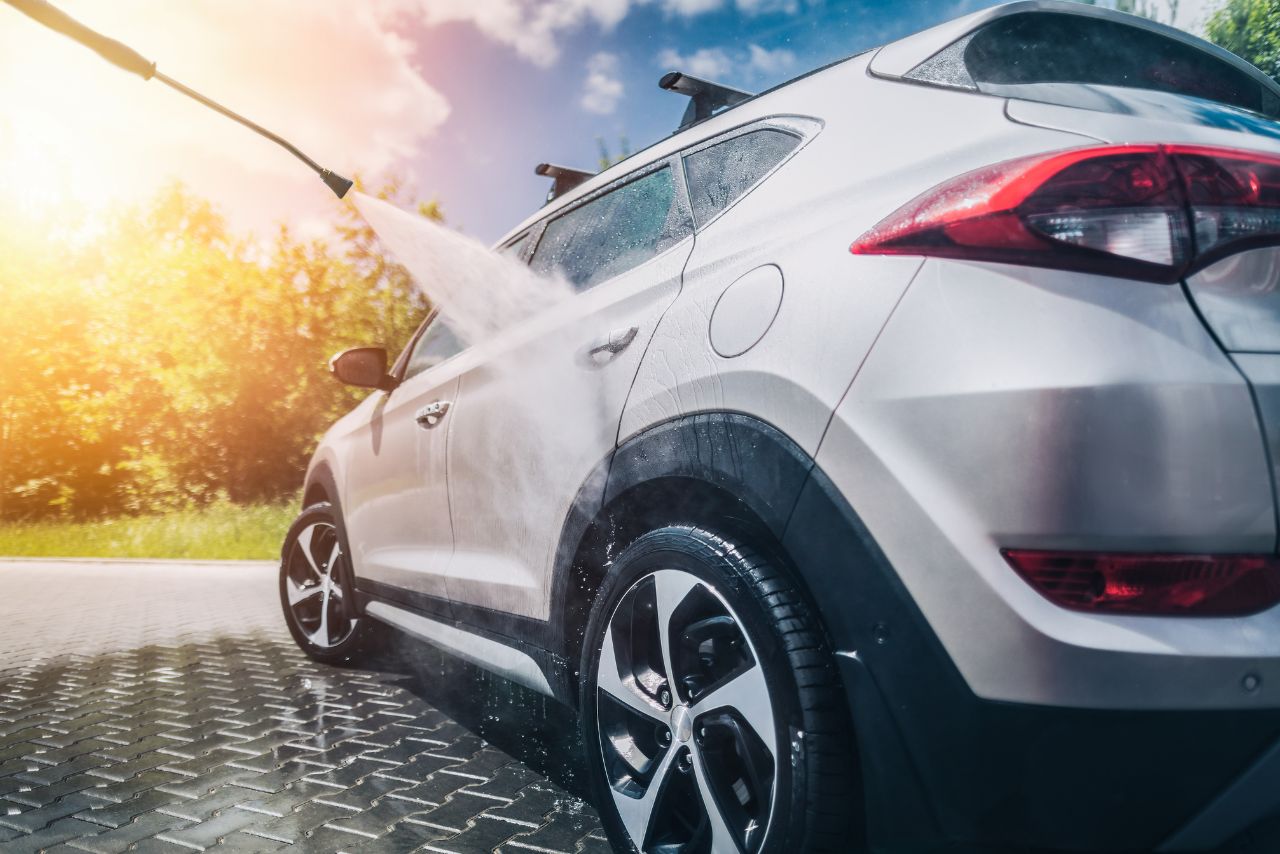
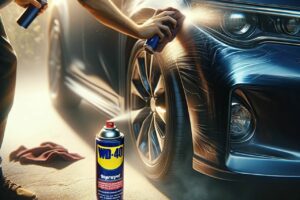




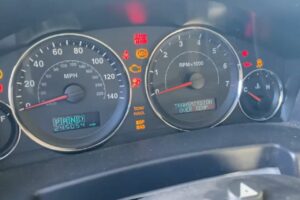
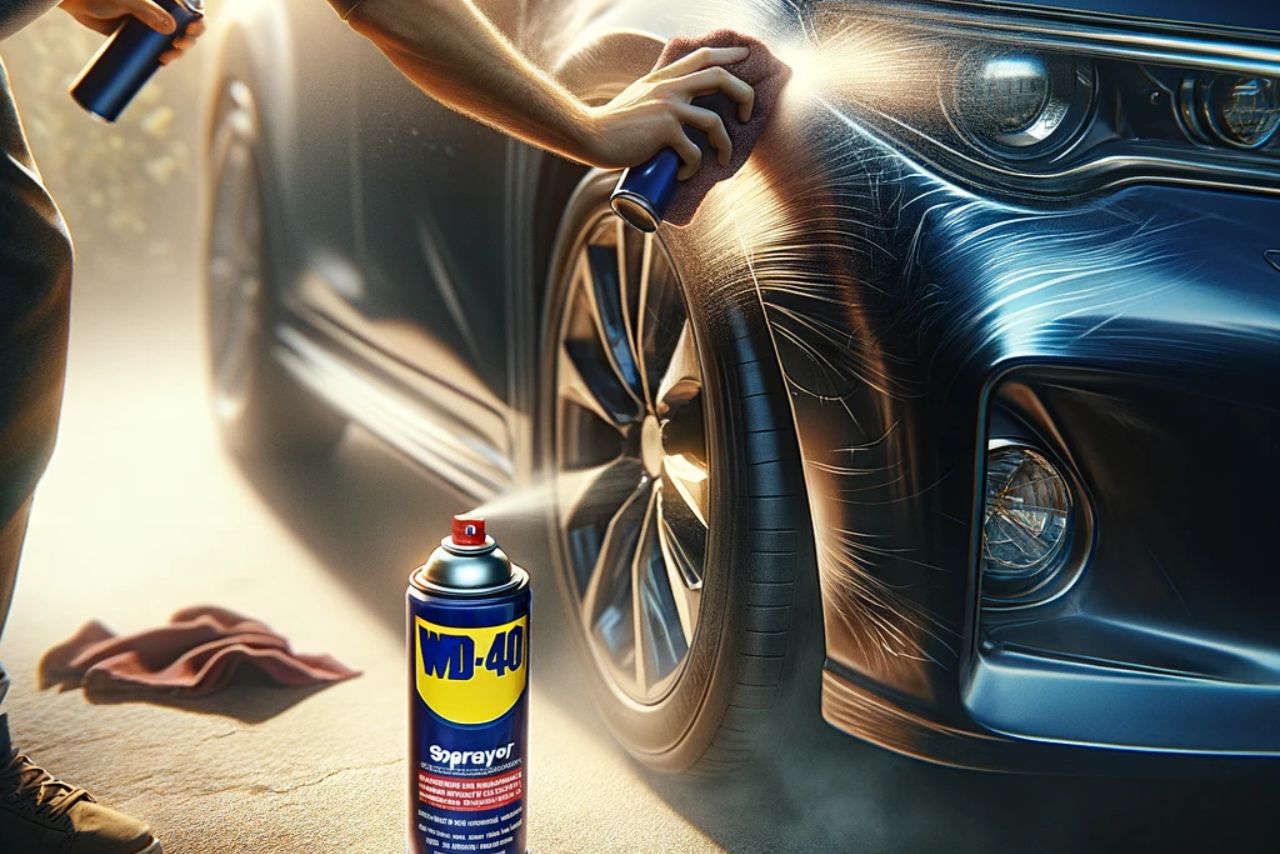
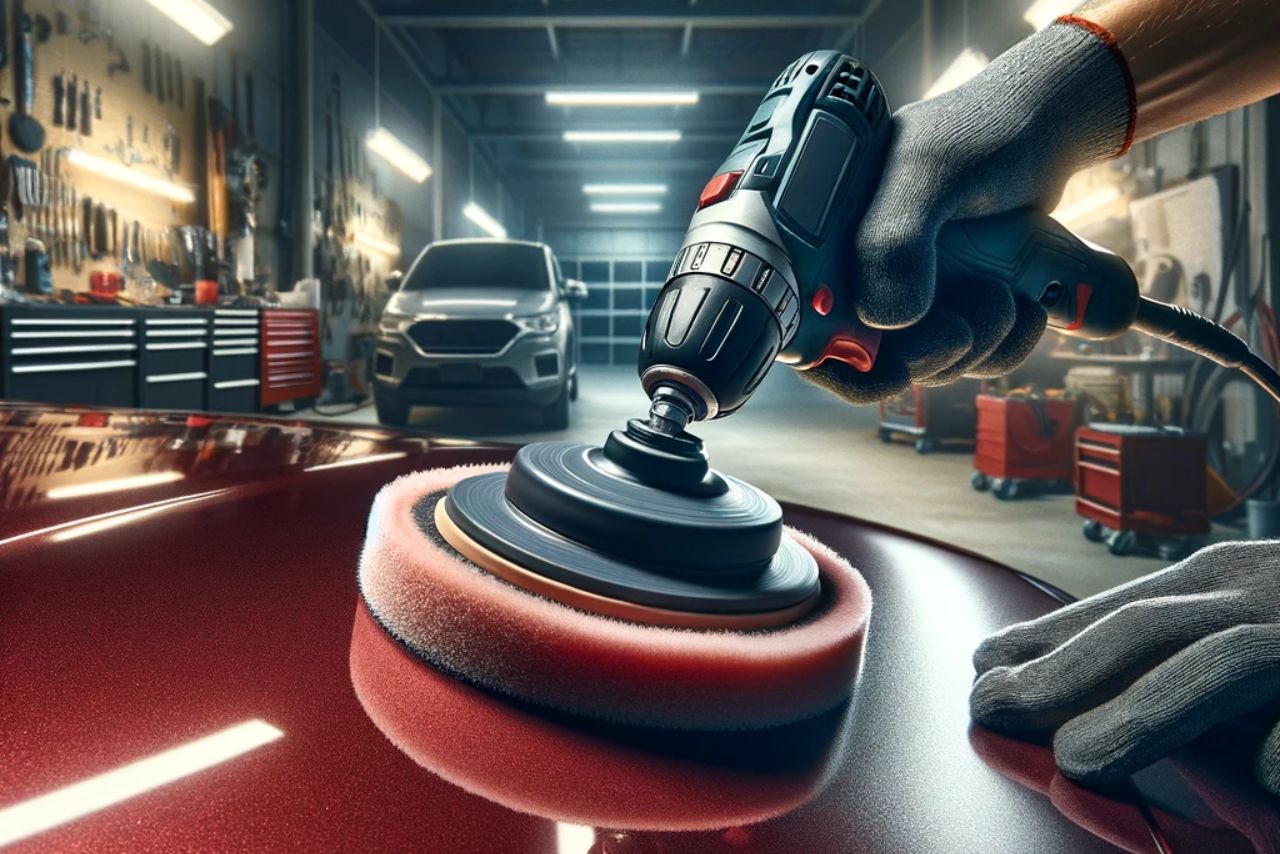

Leave a Reply